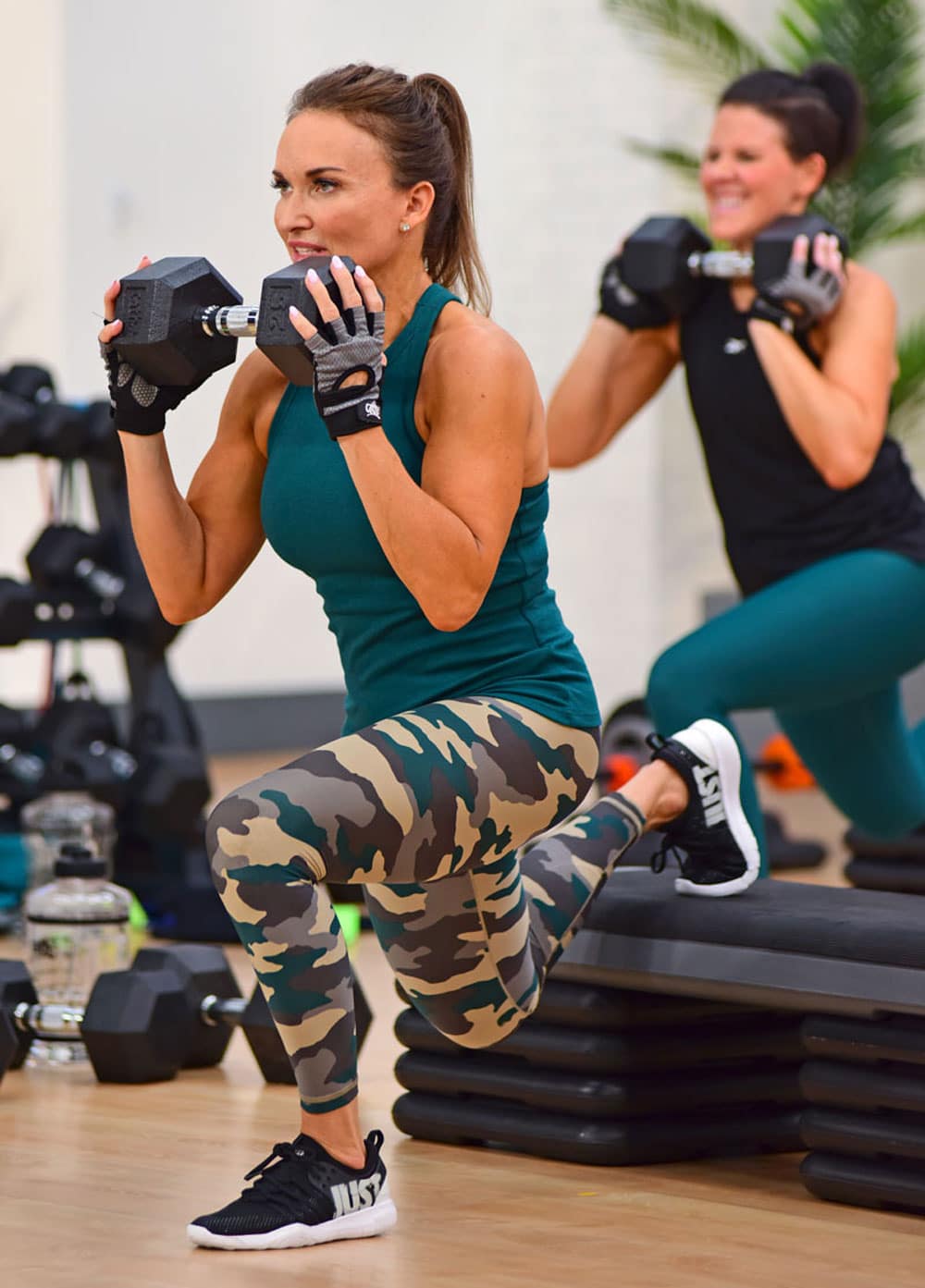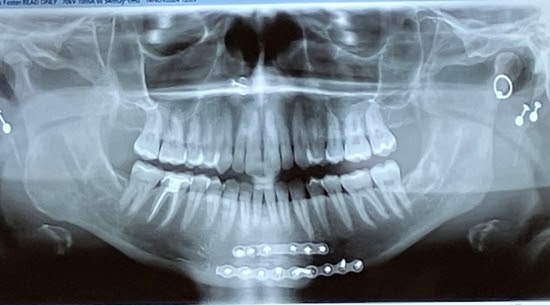Are you ready to take your leg workouts to the next level and build serious lower body strength and muscle? Then look no further than the Bulgarian split squat. This challenging unilateral exercise delivers big benefits. These benefits can translate to better performance both when you train and in your favorite sports and activities. Here’s why you should incorporate Bulgarian split squats into your strength-training routine.
Targets the Quads, Glutes and Hamstrings
The Bulgarian split squat is a compound lower body exercise that heavily involves the quadriceps, gluteus maximus, and hamstrings. By elevating your rear foot on a bench, you increase the range of motion and place greater emphasis on the front leg compared to regular split squats or lunges.
The quads take on the brunt of the work, especially if you position your front foot closer to the bench. But your glutes and hamstrings also must work hard to extend your hips, making this a well-rounded leg builder. EMG studies show greater recruitment of the glutes and hamstrings in the Bulgarian split squat compared to the standard back squat.
Improves Balance, Stability, and Coordination
As a single-leg exercise, the Bulgarian split squat challenges your balance and forces your stabilizer muscles, particularly in your core, to work overtime to keep you stable. The staggered stance also requires coordination between the lower body and core. How couldn’t use a little more core work?
Over time, this transfers to better proprioception (body awareness), stability, and injury resilience that carries over to sports and daily activities. Single-leg strength and stability is crucial for movements like running, jumping, and quickly changing directions.
Allows for Greater Depth
When you elevate your rear leg with a split squat, you get a greater range of motion and can squat deeper compared to other single-leg variations like lunges and regular split squats. This increased stretch helps boost flexibility in your hip flexors and quads.
Squatting through a larger range of motion may also elicit greater muscle growth. Research shows that deep squats lead to higher levels of muscle activation and greater gains in thigh muscle mass compared to partial squats.
Minimizes Spinal Loading and Reduces Back Strain
One of the biggest advantages of the Bulgarian split squat over traditional back squats is reduced spinal loading. With the load split between legs, each leg takes on less total weight. This reduces compressive forces on your spine.
The more upright torso position in the Bulgarian split squat also lowers the shear forces on your lower back compared to barbell back squats. If you suffer from lower back pain or want to give your spine a break from heavy bilateral squats, Bulgarian split squats are an excellent alternative for leg development with less risk of back strain.
More Knee Friendly Than the Back Squat
When you compare the back squat to the Bulgarian split squat, your knee joint undergoes more stress with a back squat. The net joint moment and peak net joint moment are significantly higher in the back squat. On top of that, your knee doesn’t bend as much when doing Bulgarian split squats compared to regular back squats.
What does this all mean? Basically, the back squat hammers your quads a lot harder than Bulgarian split squats do. Your knee extensors, which include your quad muscles, must work overtime in the back squat. If you have achy knees, the Bulgarian split squat is a better choice, as it minimizes the load on your knees.
Helps Correct Muscle Imbalances
No matter how much we focus on proper form, muscle imbalances and asymmetries are common, even in experienced lifters. Since you train each leg independently, the Bulgarian split squat is a way to even out strength and muscle discrepancies between sides.
Unilateral training ensures one leg can’t compensate for the other. With Bulgarian splits squats, your weaker leg is forced to pull its own, so to speak. Over time, this can correct asymmetries, improve muscular balance, and boost bilateral lifts like the squat and deadlift.
Highly Adaptable Exercise
The Bulgarian split squat is a highly versatile movement that you can modify to suit different goals and ability levels. Even beginners can benefit from this exercise. Beginners can start with only their bodyweight to nail down proper form before adding external resistance.
There are endless ways to load Bulgarian split squats – dumbbells, kettlebells, a barbell in the front rack or on the back, resistance bands, chains, weighted vests, etc. Changing your stance width (narrow or wide) shifts the emphasis to different areas of your legs.
You can also adjust the height of the rear foot to make the exercise harder or easier. The higher the back leg, the more difficult. Even the type of surface you elevate the rear foot on matters – a flat bench, stability ball, or foam roller create unique challenges.
How to Incorporate Bulgarian Split Squats into Your Strength-Training Routine
Now that you know the many benefits Bulgarian split squats provide, here are some tips to add them into your strength training routine:
- Start with 2-3 sets of 8-12 reps per leg, 2-3 times per week. Use a challenging weight that allows you to complete all reps with good form.
- Keep your front foot flat on the ground and avoid letting the knee cave inward. Push through the heel and keep the knee tracking in line with the toes.
- Position your torso as upright as possible. Avoid rounding the back or excessively leaning forward.
- Progress slowly and focus on quality reps. As you get comfortable with your bodyweight, gradually add resistance using dumbbells or other implements.
- Pair Bulgarian split squats with bilateral lifts like regular squats and deadlifts for best results. The two types of squats complement each other and lead to maximum leg development.
Keep Squatting
Give Bulgarian split squats a starring role in your next leg day and reap the benefits of this powerful unilateral exercise. Your legs (and the rest of your body) will thank you!
References:
- Mackey ER, Riemann BL. Biomechanical Differences Between the Bulgarian Split-Squat and Back Squat. Int J Exerc Sci. 2021 Apr 1;14(1):533-543. PMID: 34055144; PMCID: PMC8136570.
- Davis N. How to Do a Bulgarian Split Squat the Right Way. Healthline. Published November 21, 2019. Accessed March 7, 2024. https://www.healthline.com/health/fitness-exercise/bulgarian-split-squat
- Goodman W, Flores V, Cotter JA, Graham D, Becker J. Support moment distribution during the back squat at different depths and loads in recreationally trained females. J Sci Med Sport. 2024 Feb;27(2):119-124. doi: 10.1016/j.jsams.2023.11.001. Epub 2023 Nov 10. PMID: 38036316.
Related Articles By Cathe:
5 Benefits of Bulgarian Split Squats and Why You Should Include Them in Your Workout
Pistol Squats: The Toughest Squat Variation You’re Probably Not Doing
Why You Should Master a Single-Leg Squat
Why You Should Do Single-Leg Squats
7 Benefits of Unilateral Training
5 Ways to Get More Benefits from Bodyweight Squats
Front Squats vs. Back Squats: Does One Have an Advantage Over the Other?
Are Ankle and Hip Mobility Issues Making It Harder for You to Squat?
Are Squats a Good Exercise for Your Hamstrings?
How Squat Depth Impacts the Muscles You Work
Related Cathe Friedrich Workout DVDs:
STS 2.0 Muscle & Recovery Program
STS Strength 90 Day Workout Program
All of Cathe’s Strength & Toning Workout DVDs
Total Body Workouts
Lower Body Workouts


